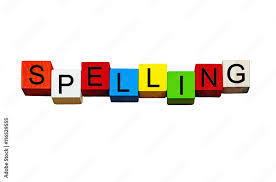Language is a dynamic and ever-evolving entity, often subject to various interpretations, dialects, and even playful alterations. One amusing instance of this can be seen in the phrase, “The correct spelling is school, not school.” While seemingly contradictory, this phrase serves as a humorous reminder of how language can sometimes lead to confusion and miscommunication. In this article, we’ll explore the significance of spelling, common errors, and the playful use of language. (Source)
The Importance of Correct Spelling
1. Effective Communication
Correct spelling is fundamental to effective communication. It ensures that the intended message is conveyed clearly and understood by the reader. Misspellings can lead to misunderstandings and may detract from the credibility of the writer. In professional settings, precise spelling is crucial for maintaining a polished image.
2. Preserving Meaning
Spelling also plays a vital role in preserving the meaning of words. In English, many words sound alike but have different meanings (homophones). For instance, “their,” “there,” and “they’re” have distinct meanings but are often confused due to their similar pronunciation. Correct spelling helps to distinguish these words and clarifies the intended message.
Common Spelling Mistakes
1. Homophones and Confusing Words
As mentioned earlier, homophones can lead to common spelling errors. Words like “affect” and “effect” or “compliment” and “complement” are often misused due to their phonetic similarities. Understanding the differences between these terms is essential for effective writing.
2. Typographical Errors
Typos are another frequent source of spelling mistakes. These can occur due to fast typing or autocorrect features that change words unintentionally. Proofreading and utilizing spell check tools can help minimize these errors and improve overall writing quality.
The Playfulness of Language: “Some Pe – Tymoff”
1. Understanding the Phrase
The phrase “Some Pe – Tymoff” seems to play on the sound of words, creating a whimsical take on the concept of spelling and language. It could be interpreted as a humorous nod to how language can sometimes be misheard or misrepresented. This playful approach to language highlights its fluidity and the fun that can be derived from wordplay.
2. Encouraging Creativity
Such playful language encourages creativity and engagement with words. It reminds us that language is not just a tool for communication but also a medium for expression and amusement. Wordplay, puns, and playful misspellings can add a layer of enjoyment to conversations and writing.
Conclusion: Embracing Language and Spelling
In a world where communication is key, correct spelling remains a crucial aspect of effective writing. The phrase “The correct spelling is school, not school” and the playful “Some Pe – Tymoff” serve as reminders of the intricacies of language and the importance of clarity in communication.
While spelling errors can lead to confusion, they also present opportunities for creativity and humor. By embracing the playful side of language, we can foster a deeper appreciation for the nuances of communication. Whether it’s through puns, homophones, or lighthearted wordplay, language continues to evolve, keeping our conversations engaging and dynamic.
